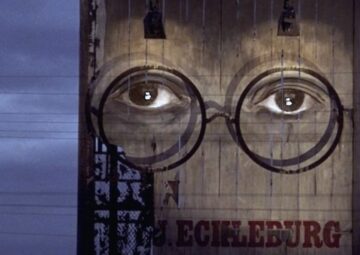John Marsh at Literary Hub:
 Can a book change a landscape? If ever a book did, it was The Great Gatsby. And if The Great Gatsby did, it did so thanks to one of its first and most ambitious readers, the urban planner Robert Moses.
Can a book change a landscape? If ever a book did, it was The Great Gatsby. And if The Great Gatsby did, it did so thanks to one of its first and most ambitious readers, the urban planner Robert Moses.
Next year marks the one hundredth anniversary of The Great Gatsby. The novel survives in cultural memory as a narrative of star-crossed lovers (Gatsby and Daisy); as a reckoning with the elusive quality of the American dream (Gatsby and the green light); or, most commonly—witness its latest revival on Broadway—as a celebration of the excitement and excess of Jazz Age America. Few remember it for what it is: an indictment of, if not the wealthy per se, than of how wealth can deform basic human decency.
The climax of the novel makes the point. In a Manhattan hotel room, Daisy informs her husband, Tom Buchanan, that she intends to leave him and marry Gatsby. After revealing the sordid ways Gatsby has made his money—bootlegging whiskey and passing fraudulent bonds—Tom bullies Daisy into staying with him.
More here.
Enjoying the content on 3QD? Help keep us going by donating now.
